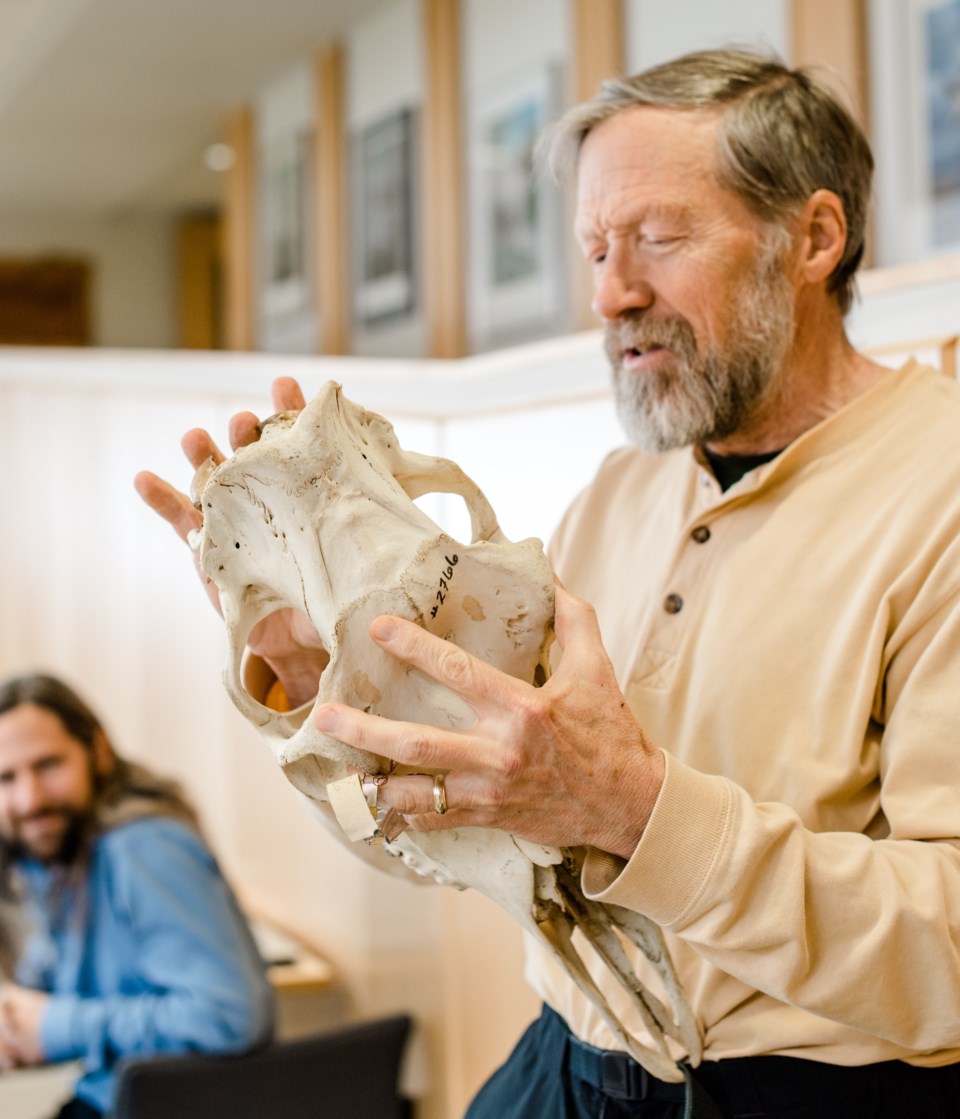ISLE ROYALE NATIONAL PARK, Michigan — During more than five decades of studying moose on Lake Superior's Isle Royale, Rolf Peterson had never encountered one that had lived to the age of 22.
The wildlife ecologist from Michigan Technological University recently confirmed he has now identified the skull of a cow moose that was 22 when it died.
"She's older than any moose I've ever heard of, and certainly older than any moose from Isle Royale that we've ever known of," Peterson told TBNewswatch. ""The oldest I've heard of anywhere was 21."
According to various sources, the animal's typical lifespan is 10 to 15 years.
Scientists determine a moose's age by counting the number of annual growth layers in an incisor tooth.
Peterson said the most recent group of moose that he studied at Isle Royale actually included four that were older than 20 when they died.
It's "remarkable," he said, given that he has aged over 3,000 moose during his work over the years, and has never encountered anything similar.
Peterson believes a diminished wolf population on the island over the last decade was the main reason the four animals survived so long.
"They got to be older than they would otherwise. Because when they get to be that old, there's almost inevitably to be arthritis and other old age problems that make them vulnerable," he said.
Peterson said the 22-year-old cow moose ultimately died of starvation in 2018.
He described her as "a museum of pathology," with arthritis in 16 of her vertebrae, infections in both upper and lower molars, and moderate osteoporosis.
"She had quite a bit of arthritis in her spine, but she still had good hips. She finally just ran out of food. She ran out of energy, basically."
The wolf population on Lake Superior's biggest island peaked at 50 in 1980 and plummeted to just two before a restocking program was initiated in 2017, using wolves from Ontario and Minnesota.
The moose population has also fluctuated widely over the years, ranging between 500 and 2,400 since 1980.
Peterson was kept away from his work on Isle Royale last winter due to COVID-19.
This week he's returning to the island to continue his study of wolves and moose.
It's believed to be the world's longest ongoing wildlife research project of its kind, having started 64 years ago.
